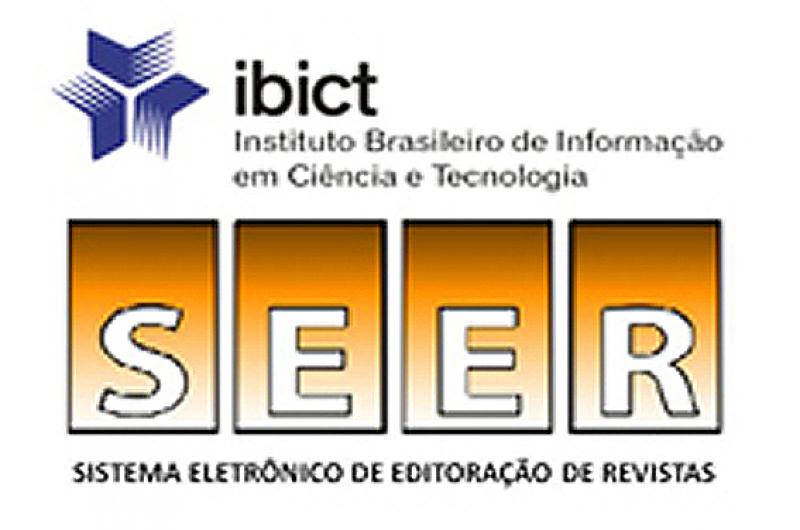Biochemical concepts from the perspective of Project-Based Learning in light of Implicit Statistical Analysis
DOI:
https://doi.org/10.31416/rsdv.v13i2.1116Keywords:
Teaching-learning, Active methodology, Mixed methodAbstract
The objective of this work was to analyze the construction of biochemical concepts supported by Project-Based Learning (PBL) and theoretical framework of Implicit Statistical Analysis (I.S.A), based on the elaboration of didactic artifacts constructed by undergraduate students in Biological Sciences from a Higher Education Institution in Pernambuco, Brazil. In this sense, two Comics and a Directed Study developed by the participants were analyzed based on analytical categories based on the theoretical framework adopted and related from the framework of I.S.A. Our analyzes allow us to infer that the PBL methodology proved to be a viable alternative for the construction of procedural concepts of a systemic-complex nature, guiding students towards conceptual (re)elaboration, in an articulated and paradigmatic way. This could be proven via a relationship of almost implication between the concept formation phase and the complex paradigm, showing that the more elaborate the concept, the student will tend to permeate the complex paradigm of science. Therefore, the use of Implicit Statistical Analysis in the process of analyzing the productions included in the investigation expanded the vision of an exclusively qualitative approach to a quantitative treatment, appropriating statistical-probabilistic elements, contributing significantly to a systemic and articulated view of the data.
References
ALMOULOUD, A. S.; COUTINHO, C. Q. E. S.; SILVA, J. F. Mapeamento de conhecimentos de professores sobre tecnologias de informação e comunicação e seus usos didático-pedagógicos. In: Régnier, J-C., Slimani, Y. Gras, R. (Org.) Analyse Statistique Implicative. Des sciences dures aux sciences humaines et sociales. Tunisie: ARSA, 2015.
ANDRADE-MONTEIRO, A. S. F.; Brayner-Lopes, F. M.; Carneiro-Leão, A. M. A. Mobilizando os saberes docentes: Rumo à compreensão dos processos biológicos em uma perspectiva Sistêmico-Complexa. Revista Ensaio, v. 21, e. 10426, 2019.
BACICH, L.; MORAN, J. Metodologias ativas para uma educação inovadora: uma abordagem teórico-prática [recurso eletrônico]. Porto Alegre: Penso, 2018.
BENDER, W. Aprendizagem baseada em projetos: educação diferenciada para o século XXI. Porto Alegre: Penso, 2014.
BRAYNER-LOPES, F. M. Formação de docentes universitários: num complexo de interações paradigmáticas. 2015. 260 f. Tese (Doutorado em Ensino das Ciências) – Universidade Federal Rural de Pernambuco, Recife.
CASTAMAN, A. S.; DE BORTOLI, L. Â. Práticas Educativas: relato de experiência na unidade curricular de Engenharia de Software. Informática na educação: teoria e prática, Porto Alegre, v. 23, n. 1, p. 32-44, 2020.
FILATRO, A; CAVALCANTI, C. C. Metodologias inovativas na educação presencial, a distância e corporativa. 1. ed. São Paulo: Saraiva, 2018.
GUERRA, R. A. T. et. al. Caderno Virtual. João Pessoa: Ed. Universitária, 2011.
JORDÃO, D. Uso das metodologias ativas no enfrentamento do bullying: uma experiência com a Aprendizagem Baseada em Projetos. Revista Retratos da Escola, Brasília, v. 18, n. 40, p. 237-260, 2024.
KRESS, G.; VAN LEEUWEN, T. Reading images: The grammar of visual design. London: Routledge, 1996.
LAKATOS, E. M.; MARCONI, M. A. Fundamentos da Metodologia Científica. 8. ed., São Paulo: Atlas, 2017.
MARIOTTI, H. As paixões do ego: Complexidade, política e solidariedade. 3. ed. São Paulo: Palas Athena, 2000.
MORAN, J. M. Metodologias ativas para uma aprendizagem mais profunda. In: Bacich, L.; Moran, J. (org.). Metodologias ativas para uma educação inovadora: uma abordagem teórico-prática. Porto Alegre: Penso, 2018. p. 2-25.
NELSON, D. L.; COX, M. M. Princípios de Bioquímica de Lehninger. 6. ed. Porto Alegre: Artmed, 2014.
RÉGNIER, J.-C.; ANDRADE, V. L. V. X. Análise Estatística Implicativa e Análise de Similaridade no Quadro Teórico e Metodológico das Pesquisas em Ensino de Ciências e Matemática com a utilização do Software CHIC. 1. ed. Recife: EDUFRPE, 2020.
SÁ, R. G. B. Um estudo sobre a evolução conceitual de respiração. 2007. 161 f. Dissertação (Mestrado em Ensino das Ciências) – Universidade Federal Rural de Pernambuco, Recife, 2007.
SANTOS DE AQUINO, R. Ensino de ciências em cultura cruzada: a formação de conceitos em sala de aula multicultural em Salgueiro, Pernambuco, Brasil. 2022. 362 f. Tese (Doutorado em Ensino das Ciências) – Universidade Federal Rural de Pernambuco, Recife, 2022.
SANTOS, D. F. A. Dos; CASTAMAN, A. S. Metodologias ativas: uma breve apresentação conceitual e de seus métodos. Revista Linhas. Florianópolis, v. 23, n. 51, p. 334-357, jan./abr. 2022.
SANTOS, J. L. G.; ERDMANN, A. L.; MEIRELLES, B. H. S.; LANZONI, G. M. M. L.; CUNHA, V. P.; ROSS, P. Integração entre dados quantitativos e qualitativos em uma pesquisa de métodos mistos. Texto Contexto Enferm, v. 26, n. 3, 2017.
SILVA, M. A. M. Aprendizagem Baseada em Projetos: fundamentos teórico-metodológicos e perspectivas didáticas. Peer Review, v. 6, n. 8, p. 309-328, 2024.
SILVERTHORN, D. U. Fisiologia Humana: Uma abordagem integrada. 2. ed. Porto Alegre: Artmed, 2017.
SOLNER, T. B.; FERNANDES, L. S.; FANTINEL, L. O ensino de bioquímica: uma investigação com professores da rede pública e privada de ensino. Revista Thema, v. 17, n. 14, p. 899-911, 2020.
VARGAS, L. H. M. A Bioquímica e a Aprendizagem Baseada em Problemas. Revista Brasileira de Ensino de Bioquímica e Biologia Molecular, São Paulo, n.1/jan-jun, 2001.
VYGOTSKY, L. S. Pensamento e Linguagem. São Paulo: Martins Fontes (traduzido do thought and language por Jefferson Luiz Camargo), 1999.
VYGOTSKY, L. S. Pensamento e linguagem. São Paulo: Editora Martins Fontes, 3. ed., 2005. Tradução Jefferson Luiz Camargo.
Downloads
Published
How to Cite
Issue
Section
License
Copyright (c) 2025 Revista Semiárido De Visu

This work is licensed under a Creative Commons Attribution 4.0 International License.















